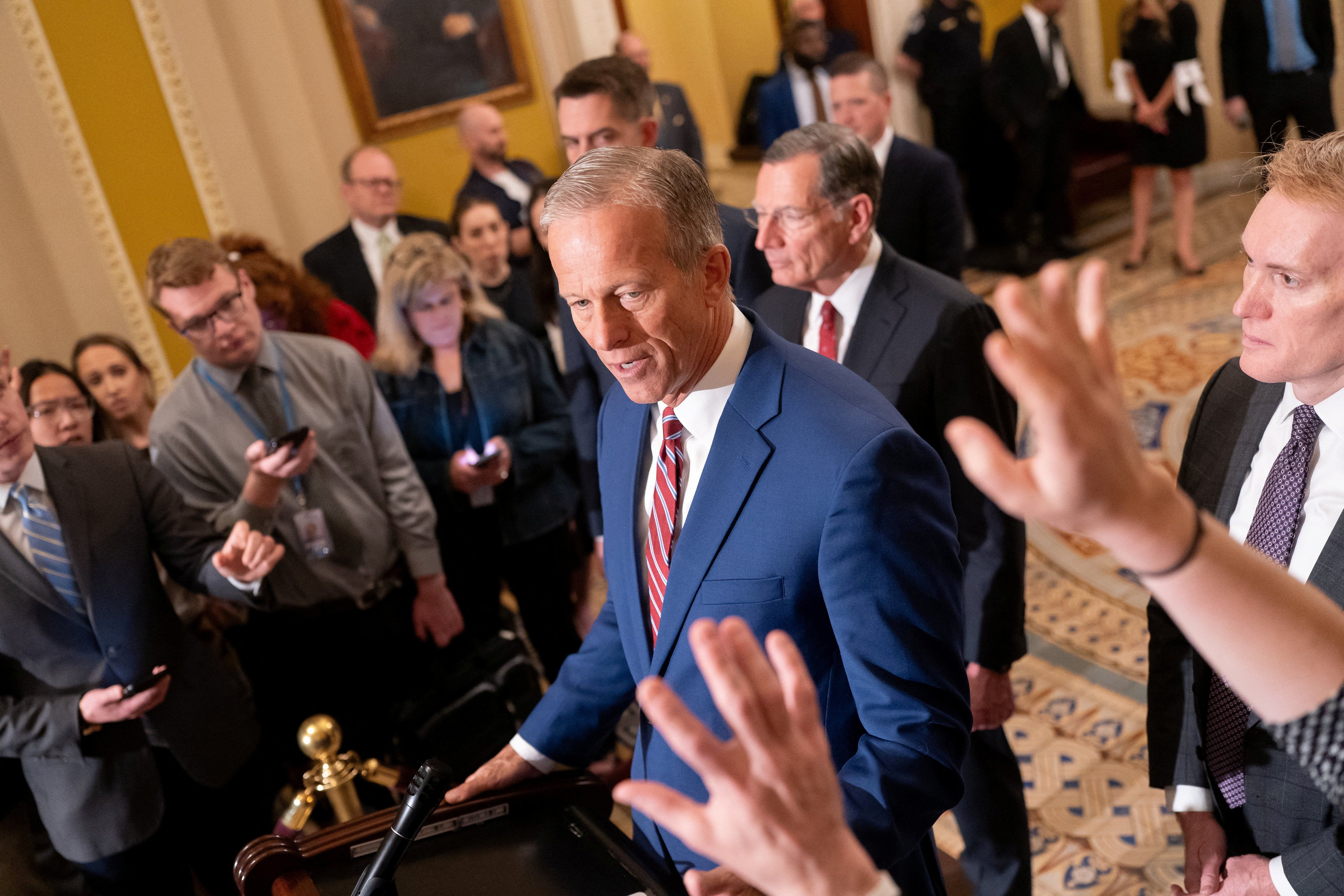The U.S. Senate parliamentarian revealed on Sunday that a significant portion of the 2026 budget, known as "the big, beautiful bill," will require 60 votes to pass.
Republicans had hoped to use the reconciliation process to side-step a filibuster, or other delay tactics, in the Senate. However, as Slate's Mark Joseph Stern pointed out Monday, "This effectively guts a big chunk of the bill."
The budget reconciliation process was created as a way of passing certain types of budget bills without delays. The process requires "The Byrd Rule," which is a provision in the United States Senate that governs what can be included in budget reconciliation bills. It is designed to limit the content of reconciliation bills to matters that directly affect the federal budget - specifically spending, revenue, or the debt limit.
The ruling by the Senate parliamentarian — a nonpartisan official whose decisions are advisory but are rarely overridden by the Senate — found that much of the bill was not covered by the rule.
As Stern wrote, issues like the GOP's "massive assault on federal regulations and several heinous attacks on civil service protections" don't fall under the Byrd Rule.
Last week, Senate Majority Leader John Thune (R-SD) sent the bill back to the Appropriations Committee for edits. Sen. Susan Collins (R-ME) chairs that committee.
Thune also told reporters he still hasn't managed to sway at least one key GOP vote for approval.
